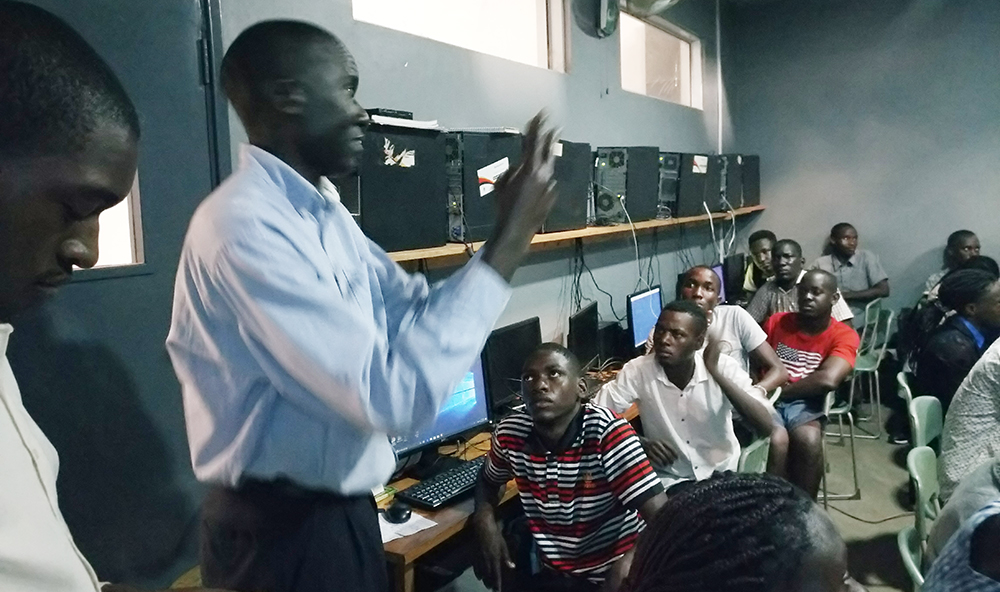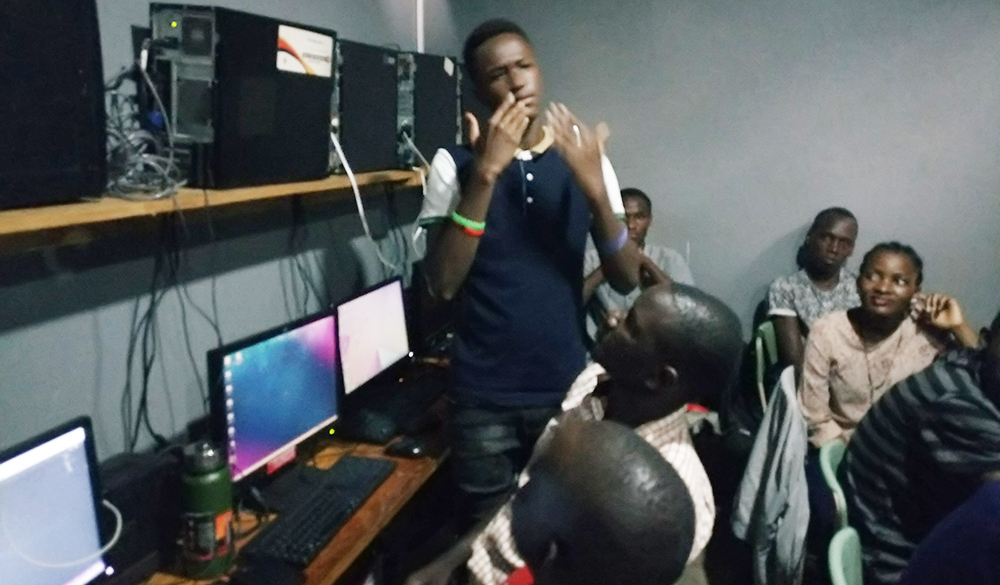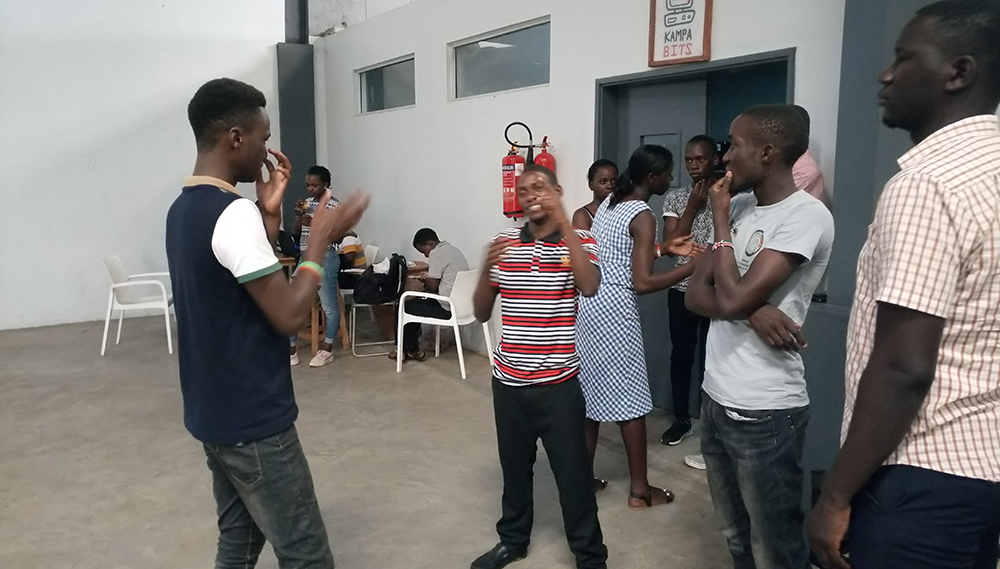Technologically Speaking, KampaBits Is Redefining The Web Design Space
A class of 30 participants is attentively settled in the Kampabits office at the Design Hub Kampala. A youthful lady is seated behind a computer demonstrating how to program a computer game. They are doing a practical session on mobile and web game design using the Scratch Programming language.
There is something defining about the air in the room; there is a sign language interpreter at the front of the class, the facilitator ensures that they call everyone out by name and direction is given in detail. There is a commendable feel of disability inclusion in the room.

Barry, a sign language interpreter translating for the young deaf persons in the training
Emmanuel Semutenga, the Project Manager at Kampabits, mentions that with this training Kampabits is enhancing youth employability through advanced ICT skills on graphic and web design and mobile app development. He is extremely happy about the fact that in this training it is the first time that Kampabits has been able to include young persons with disabilities. Out of 60 learners, 10 students are deaf or hard of hearing, and 2 female students have a physical impairment. He notes that the young persons are remarkably bright, and thus challenge the interpreter and the instructors to be fast.
For the students with disabilities, the training offers them an opportunity to finally learn things that they have looked out for over a long period of time. Take Innocent Kusiima 24, a young deaf person. He wanted to study web design, but his parents thought he would not perform well so it did not materialize.

Innocent Kusiima during his short interview with us
“If my parents had believed in me to perform well in school even though I am deaf, I would have learnt this earlier than 24. Now is the first time I am getting to do what I have always wanted” he said.
He adds that the Scratch Programming language sessions have exceeded his expectations, enabling him to learn how to use programming to come up with solutions to contemporary life challenges. He intends to use the skill acquired to engage other young deaf persons on technology.
“People say we can’t do things because they haven’t tried to include us. If you give a person with a disability a chance to try, you will be positively surprised” he mentioned.
Rachel Nakato, one of the other students at the training, expresses this in her statement:
“When they came in, I was surprised because they use sign and we talk. I thought we could never share a smile because I thought they were locked up in themselves. But that very day they gave me a sign name and one of them is teaching me sign language. I feel so excited to help them because it is a new experience in my life” she said.

Pelly Mbonimpa, one of the young deaf persons taking part in the training
For Rachel, the training is an opening to do many great things. She mentions that he is very passionate about fashion and a fashion designer. “Now I will add being a web designer, and I will be a busier and better person” she jovially mentioned before adding his gratitude to Light For The World that has supported them and she requested that this shouldn’t be the last time. Let them continue to empower other young people.

Students at the training have a break conversation in sign language
Are you a person with a disability and would you also like to be involved in training opportunities or informed about job opportunities? Please get yourself known to us by contacting l.abenaitwe@light-for-the-world.org

